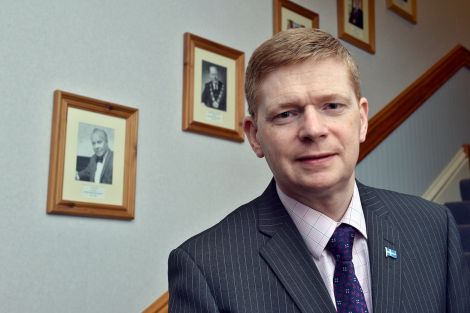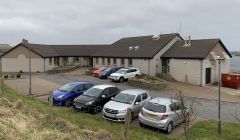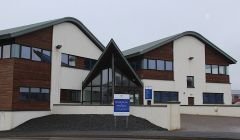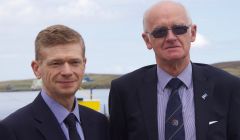Council / ‘We may struggle to fill seats’: SIC convener’s concern over interest in local democracy
SHETLAND Islands Council’s convener says the lack of people who put themselves forward for the last local government election was a “real concern”.
Malcolm Bell said “if that trend continues we may well struggle to fill seats, never mind have uncontested seats”.
The Lerwick councillor pointed out that in the last SIC election in 2017 three of seven seats were effectively uncontested.
In the South Mainland only three people went in for the three seats, meaning there was no election in the ward.
In the Lerwick North and North Mainland wards “paper candidates” were entered by the Conservatives to have a presence on the ballot paper, but they were not active candidates and gained few votes.
The next council election is scheduled for 2022 and Bell said the numbers were a worry.
Speaking while giving evidence to the Scottish Parliament’s local government and communities committee on Wednesday, Bell believed one factor behind the lack of participation was the perception of local democracy.
“There may well be a lot of reasons for that [the participation in 2017], but I’m sure one of the reasons is that people don’t see the value of local government,” the convener suggested.
There were better numbers in last year’s by-election for the Central and Lerwick South wards, however, with five candidates in each area fighting for their local seat.
Bell was speaking during discussions on a proposed law around local government.
The bill, introduced by Green MSP Andy Wightman, aims to bring the European Charter of Local Self-Government into Scots Law.
It is an international treaty of the Council of Europe which enshrines basic rules guaranteeing the political, administrative and financial independence of local authorities. It came into force in 1998.
Bell said he felt the passing of the bill would “send out a very clear signal that local government is valued as a partner in the overall governance of Scotland”.
Become a member of Shetland News
He said it would be an important “first step in changing the direction of travel” – a direction of travel that has been ongoing for decades.
“Why wouldn’t we adopt this? Scotland likes to think of itself as a very European nation…but in terms of its centralisation habits it’s actually a very British nation,” Bell said.
He told the committee that “for decades, the power and influence of local government has been eroded”.
“We feel undervalued, we feel underfunded and we feel very much under the authority of Holyrood as opposed to being a partner.”
Bell also said he is finding it more difficult to explain to people in simple terms the difference an elected member can make.
Sixty per cent of the council’s revenue budget goes on delivering national outcomes.
“In that sense, we’re becoming very much like health boards, I guess,” he said.
“In Scotland we have a very weak system of local government in comparison to most of the other countries in Europe.”
Bell’s comments come on the back of SIC members’ overwhelming vote in September in favour of exploring options for financial and political self-determination.
Become a member of Shetland News
Shetland News is asking its readers to consider paying for membership to get additional perks:
- Removal of third-party ads;
- Bookmark posts to read later;
- Exclusive curated weekly newsletter;
- Hide membership messages;
- Comments open for discussion.
If you appreciate what we do and feel strongly about impartial local journalism, then please become a member of Shetland News by either making a single payment, or setting up a monthly, quarterly or yearly subscription.













































































